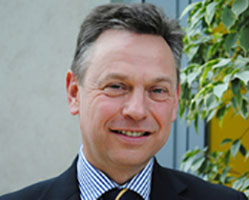
In a speech to the Security Twenty 15 conference the UK Surveillance Camera Commissioner, Tony Porter, has admitted just 5% of cameras are actually regulated.
The focus of the speech was to look at the impact of the code on surveillance camera systems and the challenges facing the industry. The transcript of the speech is available online and makes for some interesting reading. Some of the comments in Porter’s speech will surprise people. For example:
- The UK has installed between four and six million cameras depending on which research you read.
- In an urban area in the UK you are likely to be captured by about 30 surveillance camera systems as you go about your daily business – not cameras, systems! If you want to know that’s probably around 300 cameras!
- Only around five per cent of cameras fall under the code
- The Automatic Number Plate Recognition (ANPR) system in the UK captures around 27 million images each day…the total number of ANPR cameras remains a mystery.
It is likely that many of these comments will surprise people, not least the number of cameras in the UK today. But how realistic is the threat of CCTV?
Surveillance getting more intrusive
It is easy to overreact when faced with numbers such as six million surveillance cameras in the UK. In his speech, Porter makes that point that many of these cameras are not only old technology but deliver poor quality of the images. He compares it to the myth put around by TV programmes such NCIS and 24 where watches are read by space borne satellite cameras.
Despite this, there has been a significant investment in HD camera systems and not just by public bodies looking to capture data that would be acceptable in legal proceedings. Examples of non public bodies investing heavily in CCTV are:
- Casinos who have become experts in surveillance systems to prevent cheating. They use very high definition systems that are linked to facial recognition and highly protected databases of potential cheats. They have significant investments in storage technology, hold data for years and regularly share that data with other casino operators. These are non-regulated systems.
- Shopping malls are highlighted by Porter as an example of a non-public space where the systems are not regulated. Like casinos, they are increasingly using facial recognition to track shoplifters and ANPR to track and record vehicles entering their carparks. There are no records on how long they keep data and most make it very hard to identify the data protection officer who can provide this information. There is also an increasing third party market to purchase the CCTV data by reality TV shows, news programmes and researchers looking to do analysis on how people shop.
- The majority of petrol stations use ANPR to reduce the amount of fuel theft but do not publish how long data is retained for and footage is often sold to reality TV shows.
- Football and sports stadiums are also making greater use of CCTV for security and safety. While they provide access to local Police Forces, the systems do not fall under existing regulatory requirements.
- Even Universities are singled out by Porter for their increased use of CCTV.
Porter realises the challenge of trying to determine who should and shouldn’t have to comply to the code asking: “Should any organisation operating CCTV that monitors public space have to comply with the code? Would they have to do much more than they are already doing such as comply with the data protection act?”
The challenge for Porter, if he wants to restore trust between the public and government is to declare coverage of any commonly used space as needing to be regulated. This will remove the confusion as to what is a public space where surveillance is regulated and where it is not.
Surveillance systems are being abused
There have been several stories in the press of local councils abusing CCTV and even using private investigators to prove whether families live in school catchment zones. These have done nothing to endear the positive benefits to the public. In his speech, Porter highlights the fact that breaches of the code that controls usage are widespread across councils.
Porter cites traffic management, waste management, housing and environmental services are all making illegal use of CCTV. The government acted last year to ban the use of CCTV to issue parking fines with a small number of exceptions. It is not clear from his speech whether Porter is implying that this is still happening or if he is talking about other types of traffic management usage.
Ironically, with the rise in fly tipping there is public support for environmental and waste management use of CCTV and many people will be surprised that this is not covered by the code.
To help minimise the amount of abuse Porter said: “there is still a huge challenge to get all parts of Local Authorities code compliant but it’s one that I’m determined to overcome. I will continue to offer advice on how to comply with the code and where necessary meet minimum standards.”
Emerging technologies a significant challenge
One area that Porter called out was the evolution of technology. He mentions the use of Body Worn Video, drones and facial recognition, all of which are regularly in the news. One example he cites is the use of facial recognition at the recent Download music festival by the Leicestershire police force to monitor the crowd. This wasn’t made clear to festival goers and caused an outcry. Yet police forces are increasing keen to utilise facial recognition on a wider scale and want cameras at head height not mounted on buildings.
As Porter highlights, Body Worn Video is being used by the police to capture evidence for courts. But look around public spaces and even the roads and the use of personal video recording has exploded. Cyclists and motor cyclists now wear cameras to protect themselves from other road users. The same is true of car users who use it to capture examples of poor driving.
Much of this is then posted online which completely ignores the issue over privacy. It would be useful for Porter to issue clarification in conjunction with the Home Office to help people understand what they can and cannot post. At present, most of the public believe that anything they capture on a public street can be posted online but there are a number of exceptions that have to be made clearer.
Drones are another issue and one that the Civil Aviation Authority is trying to solve. While it is illegal to fly them close to buildings and over private spaces such as sports stadiums, that isn’t stopping it happening. As well as the breaking of flight and safety laws, there are also privacy issues here.
Making standards more prevalent
One of the surprises in Porter’s speech is that people are objecting to buying and understanding the relevant standards that govern usage. In his speech he said:
“I’m told that if you wanted to pay for all the possible standards you could have in relation to a CCTV control room it would cost £1,402.00 (or £701.00 if the organisation is a member of the BSI). That is not to say that every standard needs to be purchased. I don’t think that is an extortionate amount for an organisation that’s serious about running an effective CCTV system.”
Perhaps the solution is to introduce a requirement to have the standards available rather than leave this as an option. In other areas where organisations operate, access to the relevant standards which can cost tens of thousands of pounds is not optional.
Stiffer penalties required
Porter accepts that: “One thing that has been levelled at the code and my role is that it lacks teeth. This is a fair comment I think. I don’t have any powers of sanction or inspection. So if a relevant authority is not paying due regard to the code of practice there is not much I can do.”
The introduction of mandatory compliance with the risk of fines and punishment for failure is used in many parts of business. This approach often causes friction and complaints over red tape. Interestingly Porter told the audience: “The government is committed to light touch regulation and minimal red tape for business – this is understandable. But I don’t think that ‘light touch’ regulation should be confused with doing nothing if organisations don’t comply with rules or regulations.”
While Porter might not be sure if he needs a big stick many would argue that teeth are urgently needed. The fact that companies now see CCTV and surveillance footage as a money earner already shows that companies are taking advantage of the lack of regulation and are paying little attention to privacy.
Conclusion
It is rare for a member of the government to be as open as Porter. It is to be hoped that as he works through his current review he can come up with a better approach to the code of conduct that is currently in force.


























